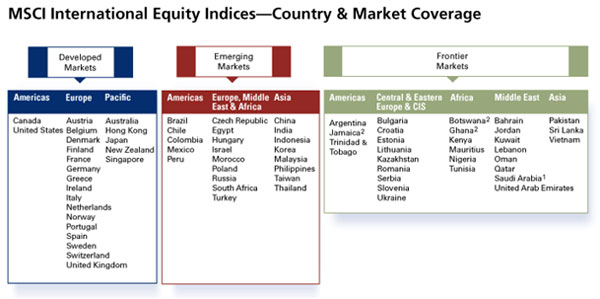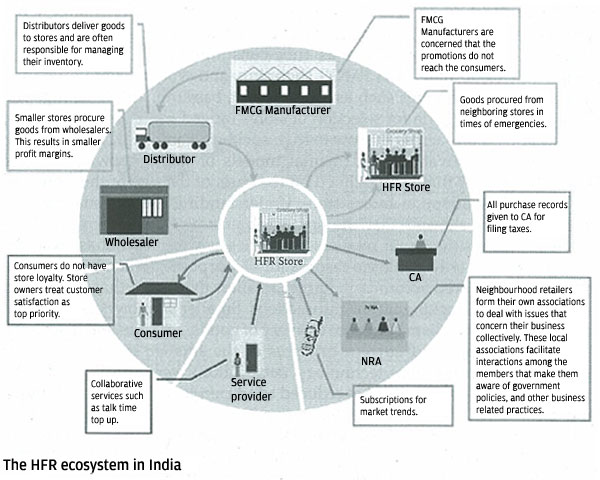- About us
- Contact us: +1.641.472.4480, hfi@humanfactors.com
Cool stuff and UX resources
Introduction
You don't need to read many newspapers or listen to many State of the Union speeches to predict the future of economic growth.
Even back in October of 2009, the Los Angeles Times could easily say in a Consumers Section headline: "U.S. firms look to sell wares in emerging markets. As sales wither at home, manufacturers see China, India and Brazil as a customer base of new affluence".
The question, then, is "how does this challenge affect my user experience responsibilities?"
Answers will vary. What is your situation? As a web site designer do you already advise, design, or support international market efforts?
As a "user experience" person, should you be thinking about user personas from other cultures who can benefit from your product?
As a graphics person, do you wonder about metaphors and symbols to engage the attention of persons whose life style differs from your own?
As a creative employee of your organization, would you like to open the door to new product scenarios based on your entrepreneurial investigations into customer needs?
All of these questions stem from reading the fine print in articles such as given above:
"The size of these potential markets dwarfs the domestic markets of most of the economically advanced nations. China, India, and Brazil have a combined population of more than 2.6 billion people, many of them young and increasingly affluent, in contrast to the aging and far smaller populations of Western Europe, Japan and the United States.
"The push overseas is taking place among small American manufacturing firms as well as giant multinational corporations. And it reflects what may be the beginning of a shift in the global economy, a rebalancing in which the world relies less on U.S. consumers and more on consumer spending in places such as China."
Have you wondered yet, "OMG, what should I know in order to fulfill these responsibilities?"
lf so, then breathe a sigh of relief. Help is around the corner.

Getting market savvy
What's there to know about user experience in "emerging" markets? That's the question answered in the book "Innovative Solutions: What Designers Need to Know for Today's Emerging Markets." The book reflects the experiences of user interface designers who have proven themselves by answering challenging design questions within the "emerging markets" like Brazil, India, China, Brazil and others (see chart). Figure 1
The editors and contributors, Apala Lahiri Chavan and Girish V Prabhu, gained their experience on consulting projects at the India offices of Human Factors International and elsewhere. An award-winning designer, Apala is Vice President of HFI Asia, managing offices in India, China, and Singapore.
Girish now serves at Srishti Labs as Director, UBD Innovation and Strategic Development. Prior management positions include new business development, research and product commercialization at Eastman Kodak, HP labs, HFI, and Intel.
With other authors, these editors present a compelling methodology you can read, understand, and use out of the box. Chapter titles quickly outline their case:
| Chapter Titles | Your take-away (as I see it)... |
|---|---|
| 1. An Introduction to Emerging Markets ‚Äď Warren Greving | Where the money is and how to earn it ‚Äď even in emerging markets. |
| 2. Key Themes of Working in Emerging Markets ‚Äď Apala Lahiri Chavan | Emerging countries have differing personas. And your experiences with developed countries fail to prepare you for understanding opportunities in emerging markets. But fear not. You'll read how to deal with it. |
| 3. Aspects of Innovation: Research and Technology ‚ÄďBeena Prabhu and Sarit Arora | Up close and personal glimpses into methods for discovering potential users (and profit) even in low-income emerging markets. |
| 4. Usage Ecosystems: Dynamics of Emerging Markets ‚Äď Girish V. Prabhu | How skillful product innovation must discover workflow relationships and dependencies to insure consumer acceptance and ROI. |
| 5. Understanding Users in Emerging Markets: What's Different? ‚Äď Apala Lahiri Chavan | Interviewing and discovery methods in emerging markets must evolve beyond what you found successful in developed markets. |
| 6. Case Studies | Inspiring stories about product design amidst your challenges of understanding an emerging market. |
| 7. Interviews | Designers who have walked the walk tell you their recipes for succeeding in counter-intuitive, emerging markets. |


Your glimpse into market ecosystem thinking
I found Chapter 5 especially instructive regarding the challenges of product innovation. The author and his HFI team researched the system of retails outlets in India where operating margins for are so thin as to discourage hope to gain a piece of that action with any automation product.
They are characterized as "FMCG" (Fast Moving Consumer Goods) retail outlets. Here's the challenge and resulting design insight in a nutshell.
- 18% of India's retail business occurs through about 6 million outlets, one store for every 200 people. 95% are smaller than 500 square feet. These smaller outlets are "mom and pop" shops. All are a part of India's annual growth rate of 47% for the retail sector.
- The government recognizes them as an important sector, providing 6% of overall employment and 11% of the country's Gross Domestic Product.
- Unlike FMCG in developed countries, these retail outlets are called HFR (High Frequency Retail). Intel's emerging markets platform hoped to find a solution that would allow these HFR outlets to compete against the pressures of "modern retail" outlets.
- HFI's contextual innovation team investigated the "ecosystem" of HFR including customers, store owners, FMCG manufacturer, distributors, and service providers.
- The methods included interviews, observations, focus groups, and most importantly, clear understanding of the "pain points" and benefits connecting the players in the HFR ecosystem.
- Research revealed that shopping for FMCG goods was as much a social activity as it was a mercantile transaction. Buyers needed to touch and feel the products. They needed change to supplement their wad of paper money. The FMCG saved them time on bill payment, banking, and ticketing for movies and travel.
- Some HFR stores extended credit to customers, an important side-function.
Different solutions for different situations
Automation solutions had to fit different HFR sub-ecosystems to motivate acceptance.
| Store Size & Equipment | Store Owner Needs (bold = primary need) |
Ecosystem Value for the Automation Offering |
|---|---|---|
<6 employees (small) Minimum technology |
Reduce dependency on distributors Generate extra income Track customer credit Reduce theft Increase efficiency |
HFR store owner had doubts about how technology could help them. They saw no ROI from technology. FMCG companies that provided products benefited by subsidizing the technology to track the HFR data and access it regularly. Theft reduction and credit records were attractions, as well. |
3-10 employees (medium) Cash register, digital weighing scale |
Assist inventory management Generate extra income Track customer credit Attract new customers Increase efficiency |
Store owners perceived records of sales transactions as a means of reducing theft. Recording credit transactions motivated adoption of technology. |
6-10 employees (large) Some owners have a personal computer |
Proactive inventory management Track customer credit Reduce billing effort Attract more customers Increase customer satisfaction |
Where a PC was not in use, store owners understood and appreciated the benefit of inventory tracking technology. If PC already in use, then customer satisfaction through adequate inventory was perceived as a benefit. Owners found tracking credit transactions valuable. |
Bringing home the bacon
We explored the changing economics of world trade. It may cause you to wonder if your performance objectives should include successful design for "emerging markets".
If so, then check out this book. It's new (2011) and contains tested methods, viewpoints and experiences that served their authors well when solving emerging market design problems.
Understanding the phrase "Bringing home the bacon" requires insider's knowledge of culture, food preparation, and even lore from the manly art of fisticuffs. Likewise, understanding your emerging market requires insider's knowledge of the cultural context and usability methods adapted to the new challenges.
This volume provides a lot of punch in a compact form. We covered one chapter to give you the meaning and impact of designing for your customer's "ecosystem."
Next issue we'll share more of what designers need to know for today's emerging markets.
References
Chavan, Apala Lahiri and Prabhu, Girish V. (2011). Innovative Solutions: What Designers Need to Know for Today's Emerging Markets. CRC Press, Taylor & Francis Group, New York, London.
Message from the CEO, Dr. Eric Schaffer ‚ÄĒ The Pragmatic Ergonomist
Leave a comment here
Subscribe
Sign up to get our Newsletter delivered straight to your inbox
Privacy policy
Reviewed: 18 Mar 2014
This Privacy Policy governs the manner in which Human Factors International, Inc., an Iowa corporation (‚ÄúHFI‚ÄĚ) collects, uses, maintains and discloses information collected from users (each, a ‚ÄúUser‚ÄĚ) of its humanfactors.com website and any derivative or affiliated websites on which this Privacy Policy is posted (collectively, the ‚ÄúWebsite‚ÄĚ). HFI reserves the right, at its discretion, to change, modify, add or remove portions of this Privacy Policy at any time by posting such changes to this page. You understand that you have the affirmative obligation to check this Privacy Policy periodically for changes, and you hereby agree to periodically review this Privacy Policy for such changes. The continued use of the Website following the posting of changes to this Privacy Policy constitutes an acceptance of those changes.
Cookies
HFI may use ‚Äúcookies‚ÄĚ or ‚Äúweb beacons‚ÄĚ to track how Users use the Website. A cookie is a piece of software that a web server can store on Users‚Äô PCs and use to identify Users should they visit the Website again. Users may adjust their web browser software if they do not wish to accept cookies. To withdraw your consent after accepting a cookie, delete the cookie from your computer.
Privacy
HFI believes that every User should know how it utilizes the information collected from Users. The Website is not directed at children under 13 years of age, and HFI does not knowingly collect personally identifiable information from children under 13 years of age online. Please note that the Website may contain links to other websites. These linked sites may not be operated or controlled by HFI. HFI is not responsible for the privacy practices of these or any other websites, and you access these websites entirely at your own risk. HFI recommends that you review the privacy practices of any other websites that you choose to visit.
HFI is based, and this website is hosted, in the United States of America. If User is from the European Union or other regions of the world with laws governing data collection and use that may differ from U.S. law and User is registering an account on the Website, visiting the Website, purchasing products or services from HFI or the Website, or otherwise using the Website, please note that any personally identifiable information that User provides to HFI will be transferred to the United States. Any such personally identifiable information provided will be processed and stored in the United States by HFI or a service provider acting on its behalf. By providing your personally identifiable information, User hereby specifically and expressly consents to such transfer and processing and the uses and disclosures set forth herein.
In the course of its business, HFI may perform expert reviews, usability testing, and other consulting work where personal privacy is a concern. HFI believes in the importance of protecting personal information, and may use measures to provide this protection, including, but not limited to, using consent forms for participants or ‚Äúdummy‚ÄĚ test data.
The Information HFI Collects
Users browsing the Website without registering an account or affirmatively providing personally identifiable information to HFI do so anonymously. Otherwise, HFI may collect personally identifiable information from Users in a variety of ways. Personally identifiable information may include, without limitation, (i)contact data (such as a User’s name, mailing and e-mail addresses, and phone number); (ii)demographic data (such as a User’s zip code, age and income); (iii) financial information collected to process purchases made from HFI via the Website or otherwise (such as credit card, debit card or other payment information); (iv) other information requested during the account registration process; and (v) other information requested by our service vendors in order to provide their services. If a User communicates with HFI by e-mail or otherwise, posts messages to any forums, completes online forms, surveys or entries or otherwise interacts with or uses the features on the Website, any information provided in such communications may be collected by HFI. HFI may also collect information about how Users use the Website, for example, by tracking the number of unique views received by the pages of the Website, or the domains and IP addresses from which Users originate. While not all of the information that HFI collects from Users is personally identifiable, it may be associated with personally identifiable information that Users provide HFI through the Website or otherwise. HFI may provide ways that the User can opt out of receiving certain information from HFI. If the User opts out of certain services, User information may still be collected for those services to which the User elects to subscribe. For those elected services, this Privacy Policy will apply.
How HFI Uses Information
HFI may use personally identifiable information collected through the Website for the specific purposes for which the information was collected, to process purchases and sales of products or services offered via the Website if any, to contact Users regarding products and services offered by HFI, its parent, subsidiary and other related companies in order to otherwise to enhance Users’ experience with HFI. HFI may also use information collected through the Website for research regarding the effectiveness of the Website and the business planning, marketing, advertising and sales efforts of HFI. HFI does not sell any User information under any circumstances.
Disclosure of Information
HFI may disclose personally identifiable information collected from Users to its parent, subsidiary and other related companies to use the information for the purposes outlined above, as necessary to provide the services offered by HFI and to provide the Website itself, and for the specific purposes for which the information was collected. HFI may disclose personally identifiable information at the request of law enforcement or governmental agencies or in response to subpoenas, court orders or other legal process, to establish, protect or exercise HFI’s legal or other rights or to defend against a legal claim or as otherwise required or allowed by law. HFI may disclose personally identifiable information in order to protect the rights, property or safety of a User or any other person. HFI may disclose personally identifiable information to investigate or prevent a violation by User of any contractual or other relationship with HFI or the perpetration of any illegal or harmful activity. HFI may also disclose aggregate, anonymous data based on information collected from Users to investors and potential partners. Finally, HFI may disclose or transfer personally identifiable information collected from Users in connection with or in contemplation of a sale of its assets or business or a merger, consolidation or other reorganization of its business.
Personal Information as Provided by User
If a User includes such User’s personally identifiable information as part of the User posting to the Website, such information may be made available to any parties using the Website. HFI does not edit or otherwise remove such information from User information before it is posted on the Website. If a User does not wish to have such User’s personally identifiable information made available in this manner, such User must remove any such information before posting. HFI is not liable for any damages caused or incurred due to personally identifiable information made available in the foregoing manners. For example, a User posts on an HFI-administered forum would be considered Personal Information as provided by User and subject to the terms of this section.
Security of Information
Information about Users that is maintained on HFI’s systems or those of its service providers is protected using industry standard security measures. However, no security measures are perfect or impenetrable, and HFI cannot guarantee that the information submitted to, maintained on or transmitted from its systems will be completely secure. HFI is not responsible for the circumvention of any privacy settings or security measures relating to the Website by any Users or third parties.
Correcting, Updating, Accessing or Removing Personal Information
If a User’s personally identifiable information changes, or if a User no longer desires to receive non-account specific information from HFI, HFI will endeavor to provide a way to correct, update and/or remove that User’s previously-provided personal data. This can be done by emailing a request to HFI at hfi@humanfactors.com. Additionally, you may request access to the personally identifiable information as collected by HFI by sending a request to HFI as set forth above. Please note that in certain circumstances, HFI may not be able to completely remove a User’s information from its systems. For example, HFI may retain a User’s personal information for legitimate business purposes, if it may be necessary to prevent fraud or future abuse, for account recovery purposes, if required by law or as retained in HFI’s data backup systems or cached or archived pages. All retained personally identifiable information will continue to be subject to the terms of the Privacy Policy to which the User has previously agreed.
Contacting HFI
If you have any questions or comments about this Privacy Policy, you may contact HFI via any of the following methods:
Human Factors International, Inc.
PO Box 2020
1680 highway 1, STE 3600
Fairfield IA 52556
hfi@humanfactors.com
(800) 242-4480
Terms and Conditions for Public Training Courses
Reviewed: 18 Mar 2014
Cancellation of Course by HFI
HFI reserves the right to cancel any course up to 14 (fourteen) days prior to the first day of the course. Registrants will be promptly notified and will receive a full refund or be transferred to the equivalent class of their choice within a 12-month period. HFI is not responsible for travel expenses or any costs that may be incurred as a result of cancellations.
Cancellation of Course by Participants (All regions except India)
$100 processing fee if cancelling within two weeks of course start date.
Cancellation / Transfer by Participants (India)
4 Pack + Exam registration: Rs. 10,000 per participant processing fee (to be paid by the participant) if cancelling or transferring the course (4 Pack-CUA/CXA) registration before three weeks from the course start date. No refund or carry forward of the course fees if cancelling or transferring the course registration within three weeks before the course start date.
Cancellation / Transfer by Participants (Online Courses)
$100 processing fee if cancelling within two weeks of course start date. No cancellations or refunds less than two weeks prior to the first course start date.
Individual Modules: Rs. 3,000 per participant ‚Äėper module‚Äô processing fee (to be paid by the participant) if cancelling or transferring the course (any Individual HFI course) registration before three weeks from the course start date. No refund or carry forward of the course fees if cancelling or transferring the course registration within three weeks before the course start date.
Exam: Rs. 3,000 per participant processing fee (to be paid by the participant) if cancelling or transferring the pre agreed CUA/CXA exam date before three weeks from the examination date. No refund or carry forward of the exam fees if requesting/cancelling or transferring the CUA/CXA exam within three weeks before the examination date.
No Recording Permitted
There will be no audio or video recording allowed in class. Students who have any disability that might affect their performance in this class are encouraged to speak with the instructor at the beginning of the class.
Course Materials Copyright
The course and training materials and all other handouts provided by HFI during the course are published, copyrighted works proprietary and owned exclusively by HFI. The course participant does not acquire title nor ownership rights in any of these materials. Further the course participant agrees not to reproduce, modify, and/or convert to electronic format (i.e., softcopy) any of the materials received from or provided by HFI. The materials provided in the class are for the sole use of the class participant. HFI does not provide the materials in electronic format to the participants in public or onsite courses.


